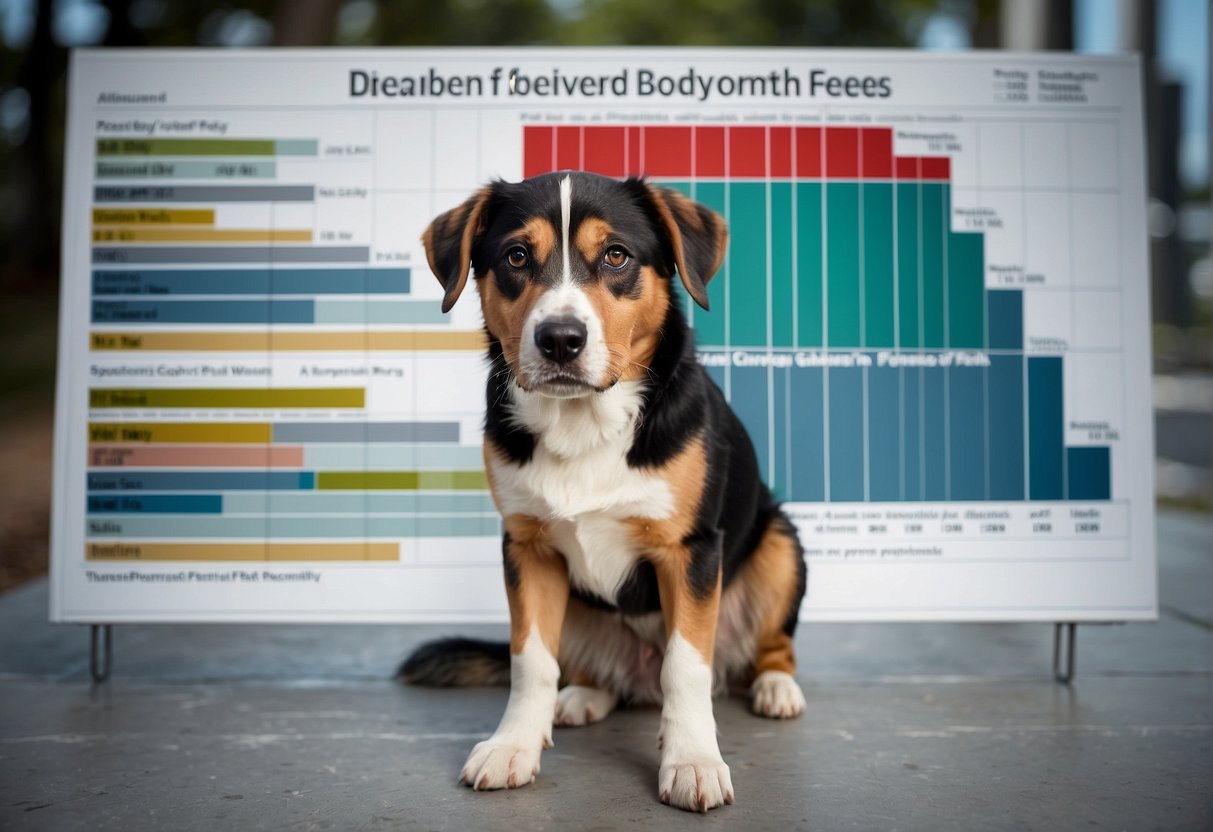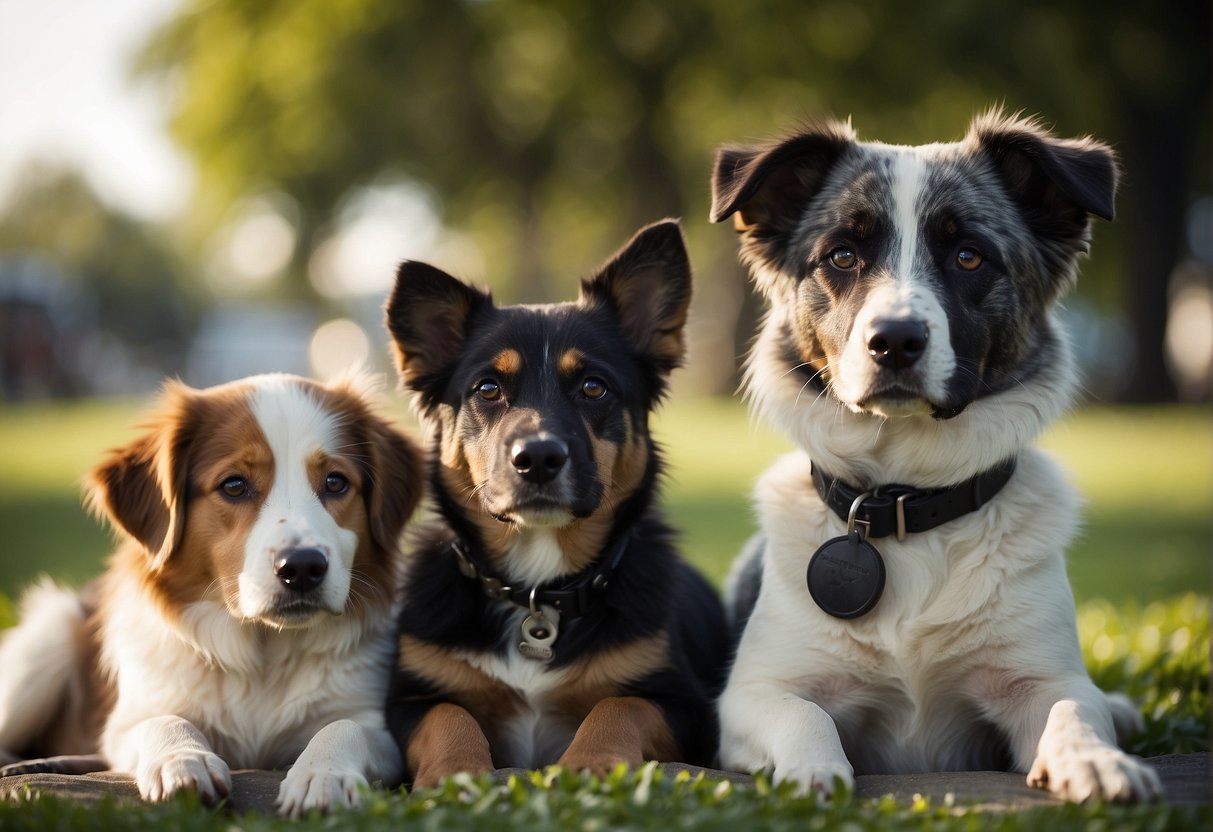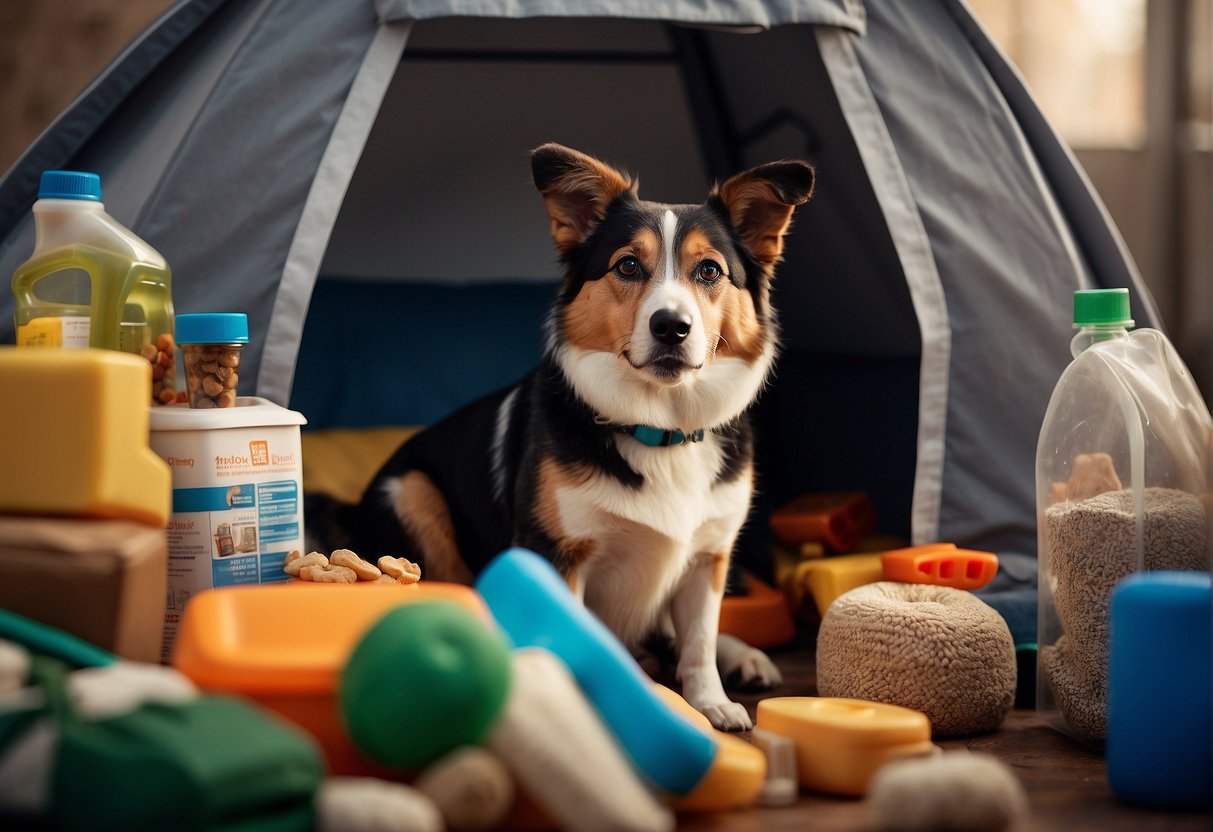When you decide to adopt a pet, you’re making a commitment to care for an animal and provide it with a loving home.
An often misunderstood aspect of pet adoption is the fee that comes with your new companion. These fees play a crucial role in the sustenance of adoption programs and ensure that your pet has received necessary care before becoming a part of your community.
Understanding what these fees cover can give you insight into the value they offer and help you appreciate the process behind pet adoption.

Adoption fees can vary widely based on factors such as the type of pet, age, breed, and the venue of adoption. These fees help cover essential services including vaccinations, spay/neuter procedures, microchipping, and sometimes even a wellness exam.
Knowing the breakdown of these fees can prepare you for the initial investment of pet adoption. Moreover, understanding the costs involved illuminates the differences between adopting from various organizations and highlights any hidden costs you may encounter along the way.
This knowledge empowers you to make informed decisions and find the best solution for both you and your future pet.
Key Takeaways
- Adoption fees ensure necessary care and support adoption services.
- Fees vary and cover crucial health services for the pet.
- Understanding these fees helps you make an informed adoption decision.
What Your Adoption Fees Generally Cover

When you adopt a dog, your adoption fee is pivotal for supporting the services and care they receive. It’s not just a price to pay; it’s an investment into your new dog’s health and happiness.
Shelter and Care Costs
These fees contribute to the day-to-day operation of the shelter where your dog has been living. This includes food, shelter maintenance, and the utilities that keep the place running. Remember, it’s not just a roof over their heads; it’s a safe haven that ensures their well-being until they find a forever home—yours!
Medical Expenses
Most dogs receive essential medical care while they’re at the shelter. This can range from basic health check-ups to treating injuries or illnesses. The fees you pay help cover these expenses, so your dog is healthy when you take them home.
Spaying and Neutering
To prevent unwanted litters and help control the pet population, shelters typically spay or neuter dogs before adoption. This procedure alone can cost between $150 to $300, but it’s usually included in your adoption fee.
Vaccinations
Dogs need vaccinations to protect them from common diseases. When you adopt, your dog has likely received a distemper vaccine and a rabies vaccine, which are critical for their health.
Microchipping
A microchip is a form of permanent ID that can help reunite you with your dog if they ever get lost. The tiny chip is inserted under their skin and can be scanned to retrieve your contact information. This one-time procedure, often part of the adoption fee, gives you peace of mind.
Behavioral Training and Assessment
Shelters often evaluate and work on a dog’s behavior to make sure they’re ready for home life. Some basic training and socialization may have been provided to help your dog adjust quickly and happily to their new environment.
Breakdown of Fees by Pet Type

When you’re looking to add a new member to your family by adopting a pet, understanding the breakdown of adoption fees is crucial. These fees can differ not just by shelter but also depending on the type of pet, their breed, age, and size.
Dogs
The cost to adopt a dog generally ranges from $50 to $500. This can vary based on factors like the dog’s breed and age. For instance, puppies often have higher fees because they’re in demand and require additional veterinary care before adoption. Here are a few things your dog’s adoption fee might cover:
- Vaccinations
- Spaying or neutering
- Microchipping
- Initial vet visits
Larger breeds and purebreds tend to have higher adoption fees compared to mixed breeds or smaller dogs.
Cats
Adoption fees for cats are usually slightly less than dogs, typically falling between $30 and $200. The fees for kittens are usually at the higher end of this range due to similar reasons as puppies—greater demand and pre-adoption care costs. The fee you pay generally includes:
- Basic vaccinations
- Spay or neuter procedures
- Sometimes initial veterinary wellness checks
Other Pets
If you’re interested in adopting pets other than cats or dogs, like rabbits, birds, or reptiles, the fees can be quite variable. However, they’re often less than those for cats and dogs. Adoption fees for these animals might range from $10 to $100 and usually cover:
- General health check
- Species-specific care needs before adoption
Different Adoption Venues and Their Fees

When you’re thinking about adopting a dog, the cost can vary a lot depending on where you get your new pet. Let’s look at the typical fees you can expect from different places like animal shelters, rescue groups, and private breeders.
Animal Shelters
Animal shelters are often run by the government or non-profit organizations. They take in stray or abandoned dogs and take care of them until they find a new home. Adoption fees at shelters usually range from $100 to $150. This fee helps cover some of their costs for staff, medical care, and keeping the shelter running. Sometimes, shelters will have promotions or discounts where they might waive fees for older dogs or for a special event.
Rescue Groups
Rescue groups are a bit different because they usually have a network of volunteers instead of a physical shelter. These groups focus on rescuing specific breeds or dogs in dire situations. Adoption fees with rescue organizations tend to be a bit higher, averaging around $200 to $400. This is because they often cover more medical care before the dog is adopted. Plus, rescues might have references for you on how to care for the specific breed you’re adopting.
Private Breeders
Private breeders are where you’d go if you’re looking for a specific breed of dog, especially purebreds. Now, their fees will be the highest, sometimes $500 to $2,000 or more. This is because the fee usually includes a lot of things like initial vaccinations, health screenings, and sometimes even microchipping. A breeder’s fee also reflects the care and ethical breeding practices that reputable breeders follow. Keep in mind, just because it’s more expensive doesn’t always mean it’s better. Always check that the breeder is reputable!
Hidden Costs of Adopting a Pet

Adopting a pet is exciting, but it’s not just the adoption fee you’ll be dealing with. Remember, there are ongoing and sometimes unexpected expenses that you need to budget for to keep your new pet healthy and happy.
Additional Veterinary Care
Right after you adopt, you’re gonna need to take your pet to the vet. They might need shots, spaying or neutering, or even treatment for issues the shelter didn’t catch. Veterinary costs can add up, especially if you’re on a tight budget. Keep in mind, some pets come with conditions that’ll have you visiting the vet more than just once a year.
Special Diets
Some dogs might need special food. Whether it’s for allergies, weight control, or other health-related reasons, this food can cost more than regular chow. When you’re setting up your budget, allocate some funds for food that’ll keep your pet in top shape.
Grooming Needs
Depending on your dog’s breed, grooming could be a regular part of their care routine. It’s not just about looks; proper grooming can prevent health issues. You might need to pay for professional grooming services, or at the very least, pick up scissors and shampoos to do it yourself. Don’t forget to add grooming tools to your shopping list, which should include items like nail clippers and brushes.
Ongoing Training
Training is key to a well-behaved pet, and sometimes, you need a pro. Whether it’s obedience classes or more specific behavior training, it’s an investment. Classes can vary in cost, but they’re a part of the ongoing costs you should think about. Plus, you’ll probably want to grab some toys and treats to help with the training at home.
Stocking up on essentials like food and water bowls, toys, and a comfy bed is also part of the deal. Each of these things is an investment in your pet’s future, comfort, and health, but they can sneak up on your wallet if you’re not careful. So, while bringing home a new pet is definitely something to get excited about, just make sure to plan for these costs so you and your pet can enjoy that new life together without too much stress.
Why Adoption Fees Are Worth It

When you pay an adoption fee, you’re not just buying a pet, you’re providing for its past and future care, and supporting essential services provided by animal welfare organizations.
The Health Benefits to the Animal
Your adoption fee often covers the medical care the animal received before it met you. This includes crucial vaccinations and preventive procedures like spay/neutering. These interventions aren’t cheap. The average vet charge for these services can easily surpass $300. When you adopt, you also give the animal a chance at a healthier life rather than staying in a shelter.
Supporting Animal Welfare Organizations
The shelters and rescue organizations rely on adoption fees as a fundamental income source. This money helps cover the daily expenses for animals such as food and shelter. Additionally, it contributes to the rehabilitation and medical treatment of new rescues. Your fee supports the cycle of saving lives, where each adoption makes room for another animal in need.
Final Thoughts

When you decide to bring a dog from a shelter into your home, you’re not just saving a life, but also signing up for a deeply rewarding journey. Sure, the initial fees might make you pause, but they’re really a cost-effective way to ensure your new companion is healthy and ready to settle in with you.
Remember that these fees generally cover critical services. You can think of them like a starter pack for your dog’s well-being:
- Vaccinations: Keeps your pooch protected from diseases.
- Spaying/Neutering: Prevents unwanted litters and can reduce some behavioral issues.
- Microchipping: Helps you reunite with your dog if they ever get lost.
- Health Exams: Ensures your dog gets a health checkup before coming home with you.
Adopting a dog also asks for your consistency and patience, especially as they adjust to a new home. This transition may come with additional costs like a bed, leash, or toys, and could require time for positive reinforcement training.
Just a heads up: the love and loyalty you get in return are priceless. Plus, adopting from a shelter often means you’re part of a bigger solution, helping other animals by making space and keeping the adoption cycle going. So, pat yourself on the back for making such a compassionate choice. Your new companion is lucky to have you, and you’re pretty lucky, too.
